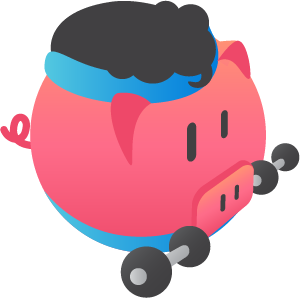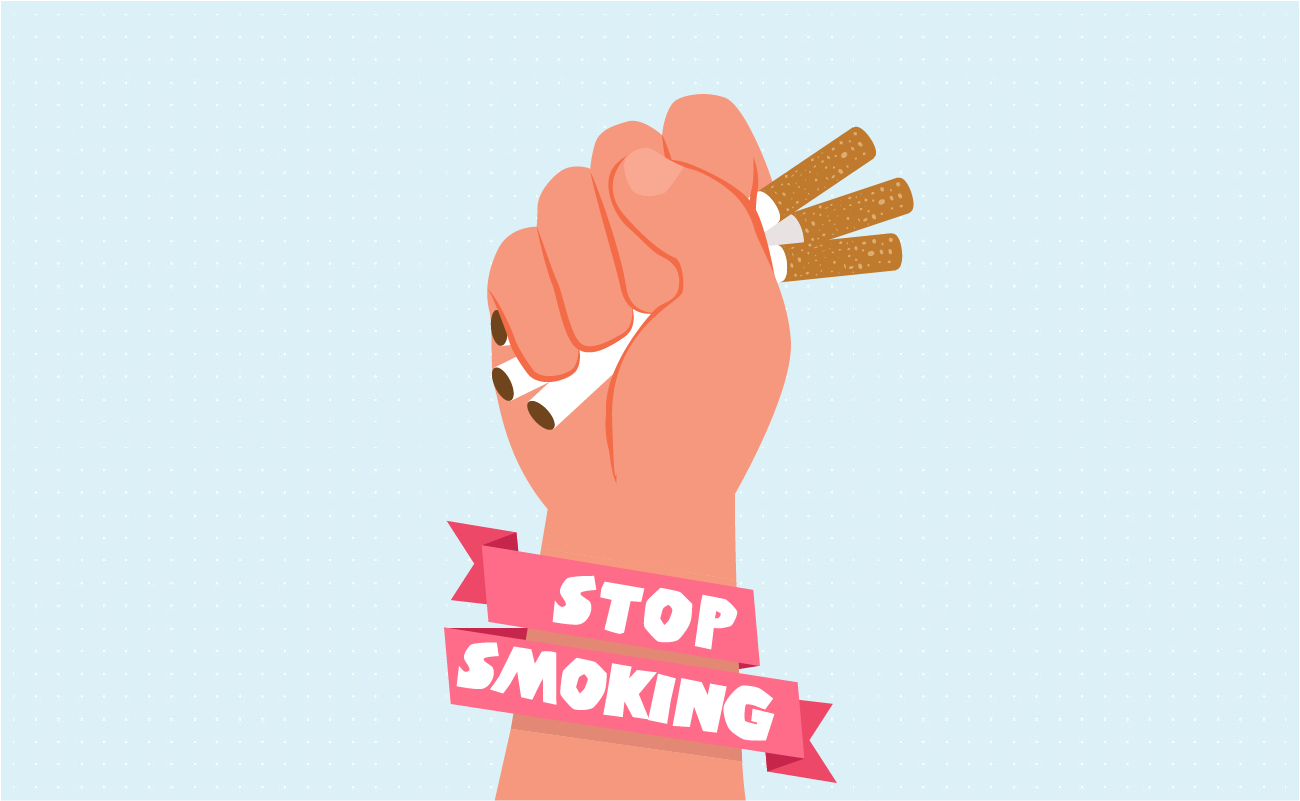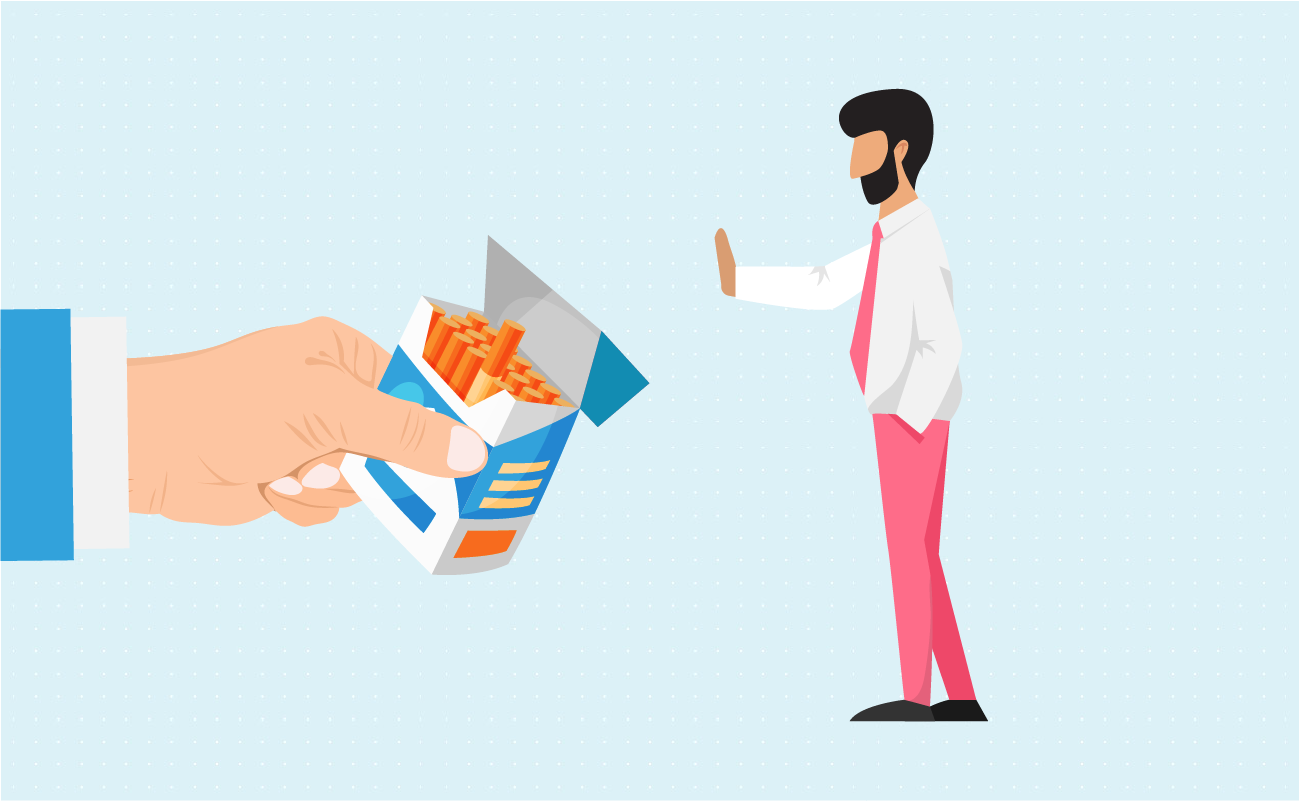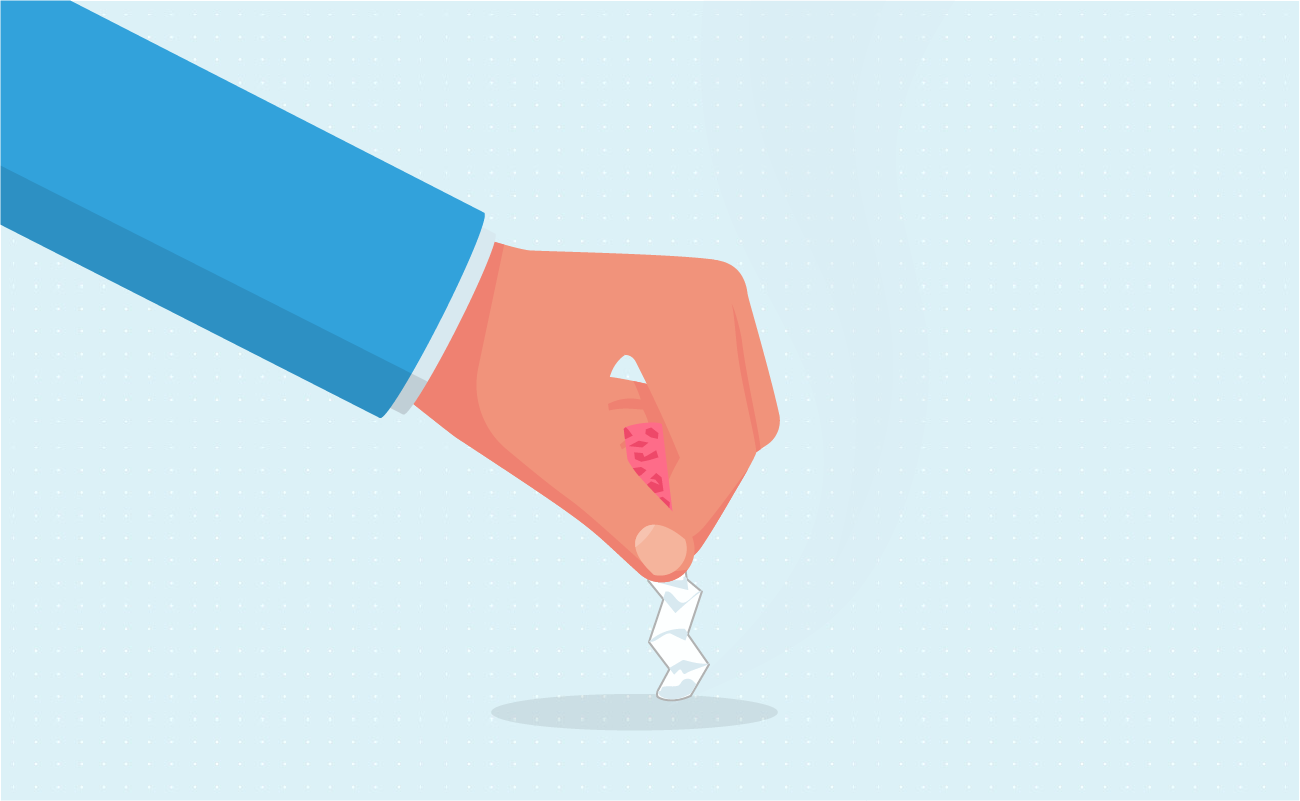Life
 Quit Smoking Calculator
Quit Smoking CalculatorIf you have quit smoking, or plan on quitting soon, this tool will not only help you to keep track of how many years, months, day, hours, minutes and seconds since you stopped smoking, but it will also help you to track how much money you've saved, how much money your invested savings could be earning and how much time you are adding to your life by choosing to be a non-smoker instead of a smoker.
Enter the month, day, year, hour, minute and second you stopped smoking, the number of cigarettes you smoked before you stopped, the interest rate and number of years to invest your savings, and then click on the "Update Stats" button.
Authored by Jose Abuyuan on December 2, 2019

So you've decided to stop smoking. Congratulations. You're in for an uphill battle, but one that your body (and your lungs, especially) will thank you for in the long run.
Regardless of how you decide to stop, smoking cessation is always a long-term deal. You're usually not going to feel better right away. There's also a high possibility that you may stumble a few time. This is normal; you shouldn't feel too bad if you need to try again.

Smoking is addictive, thanks in no small part to the presence of nicotine, making quitting difficult. Nicotine is a mind-altering stimulant, having a lasting effect on human neurochemistry.
Nicotiana tabacum is a naturally occurring toxic compound generated by tobacco plants as a way to fend off chewing insects. Medical studies revealed nicotine damages soft tissues throughout the body, especially around the nervous system.
Nicotine is a stimulant which affects the nervous system almost immediately after intake. It is not only pleasurable for smokers but also gives them a feeling of alertness in the same way as caffeine does. People often start smoking as an attempt to stay alert and awake or as a maladaptive way of handling stress.
Besides fighting tobacco addiction, nicotine has no medical uses.
Nicotine alters the balance of neuroreceptors in your brain. Removing nicotine abruptly from your system throws your brain's chemistry out of balance, as smokers who have gone cold turkey can attest. Controlling and managing these symptoms are critical to the breaking the addiciton cycle.
You experience a roller coaster of symptoms throughout withdrawal. Common symptoms include:
Likewise, you may feel constantly hungry and receive tingling sensations in your hands and feet. You might also get tremors, headaches, nausea, or stomach upsets and get constipated. Conquiring these adverse side effects & dopamine reward circuityr may give you cigarette cravings.
Surviving these symptoms seems like an impossible task, but it can be done. Nicotine withdrawal is not life-threatening; given time, your body will adapt. The right choices can help you manage the emotional and mental aspects of withdrawal. A healthy diet, exercise, and ample sleep can help improve your mood. Meanwhile, nicotine replacements can help you control the severity of other physical symptoms. You can also manage headaches and similar conditions through over-the-counter medications. Ask your attending physician for more details.
To sublimate is to divert your attention away from harmful behavior. For many people, the effects of tobacco are so strong that sublimating with a different habit is the only way to make progress.
In addiction treatment, sublimation involves replacing the unhealthy habitual actions with something less harmful. Establishing other habits creates a sense of routine which keeps you occupied & displaces the old addictions you are trying to quit.
Chewing on gum or eating candy, for instance, doesn't just stimulate the pleasure centers of the brain. It also involves similar habits to lighting a cigarette such as opening packs and putting things into your mouth.
Sublimation can also be harmful if you used something maladaptive for this purpose. Many people who quit smoking cold turkey without ample guidance might take up drinking or become addicted to a different drug. Even seemingly innocuous things used to sublimate may have unintended health effects. You might end up eating a lot more junk food, which can cause or exacerbate weight gain that often follows quitting smoking.

Selecting the right habits to replace your smoking tendency is vital. Instead of food you can incorporate healthful habits like exercise. Exercise has the advantage of managing cravings and other withdrawal symptoms. It is also helps control weight gain.

One of the most successful ways of quitting to wean the body away from smoking. Slowly cutting back on the number of cigarettes you consume can acclimate your brain chemistry to lower amounts of nicotine. This reduces the severity of withdrawal and makes symptoms easier to manage.
Maintaining this gradual decline in tobacco still requires strict discipline to succeed. A good time horizon ensures that your body adapts at a reasonable rate. Going slow also means more time for new habits to sublimate smoking.
There are cases that people become severely dependent on nicotine. Extreme nicotine dependence can manifest in chain smoking. Other signs of severe dependence include the following:
Cold turkey smoking cessation is not a feasible option for people with severe nicotine dependence. Your doctor may recommend the use of:
The key to making reductions toward quitting successful is the time horizon. The time toward your quit day should be long enough for you to get used to lower levels of nicotine. Wait too long, and you become complacent and procrastinate. Jumping in too soon, meanwhile, might be no better than going cold turkey.
The designated quit day is the most important part of the gradual approach. Merely cutting back on your smoking in the hopes of quitting eventually will not work. You are likely to find it even harder to quit if you cut back without stopping on a hard deadline. Mark your quit day and take all the steps you can to prepare for it and its consequences.
Smoking is a major risk factor for many health issues & can cause physical distress that prompts quitting cold turkey despite nicotine dependence.
Nicotine replacement therapy (NRT) may be a good temporary option for smokers who plan on tapering their nicotine intake gradually. Gums, lozenges, sprays, and patches can deliver ever-lower doses of nicotine. This keeps tobacco cravings under control while eliminating your exposure to harmful chemicals associated with smoking.
Your doctor may recommend medications like Zyban (buproprion) or Chantix (varenicline) that mimic nicotine's effects. In extreme cases, NRTs are the main aids preventing smokers from relapsing. NRTs are effective in the short term and can significantly improve your chances of quitting. Their effectiveness peters out over time, while leading to a risk of getting addicted to them instead.
Nicotine replacements should be used immediately on the day you stop smoking altogether, whereas nicotine analogues should be taken a few days prior. Over time, you must also gradually wean yourself from nicotine replacements to further kick the habit. These replacements may sometimes come with their own health side effects; consult your physician if you feel any adverse symptoms.
Another form of nicotine replacement, vaping, is much more controversial.

Vaping is devoid of some common carcinogenic materials found in tobacco products. Vaping also mimics the act of smoking better than chewing nicotine gum. However, vaping has become mired in its own controversies making it a poor choice for would-be quitters.
Vaping involves copious nicotine & its reputation for sublimating the consumption of tobacco products is poor. Data suggests that some smokers who take up vaping often fail to quit smoking. Meanwhile, quitting vaping is a challenge. Unlike other nicotine replacement therapies, e-cigarettes are addictive. Techniques used to control smoking may not be as effective for vaping.
Emotional support is critical to overcoming personal challenges like addiction.
Informing your family of your decision to quit can help them accommodate your needs. You can start by asking them to respect your decision banish cigarettes around you. You can also ask for their help in developing habits to keep your mind off smoking.
Other smokers in your family or friend circle may follow suit. Having each other's back can help improve your efforts.

Psychological triggers throughout society add another level of difficulty for smokers. Social pressure may make you want to smoke while everyday stress may make cigarettes seem like an attractive option. You cannot control everything, though trying to avoid temptation can make a world of difference.
You can, for instance, stay preoccupied if you have a history of smoking when bored. Get exciting new hobbies. Find productive and healthy ways to cope with chronic stress. Incorporate a change in routine that will make you forget about getting a cigarette. Hang out with friend groups who don't smoke. Most importantly, say no when offered to smoke.
Peer pressure is a powerful force.
Don't worry too much when your plans to kick the habit go awry. People typically fail to quit on their first attempt. It can take up to ten attempts on average to succeed. The benefits that a smoke-free life offers are well worth the effort.
When faced with difficulties, it pays to work smarter and harder. Findings show that using several methods used together can increase your chances of succeeding. Your doctor can help you develop a program that works for your. Support groups, meanwhile, can provide you with more resources to help you cope with the first few weeks of quitting. Your friends and loved ones can also give you the support you need to both stay on track and get back on the wagon.
Jose Abuyuan is a web content writer, fictionist, and digital artist hailing from Las Piñas City. He is a graduate of Communication and Media Studies at San Beda College Alabang, who took his internship in the weekly news magazine the Philippines Graphic. He has authored works professionally for over a decade.